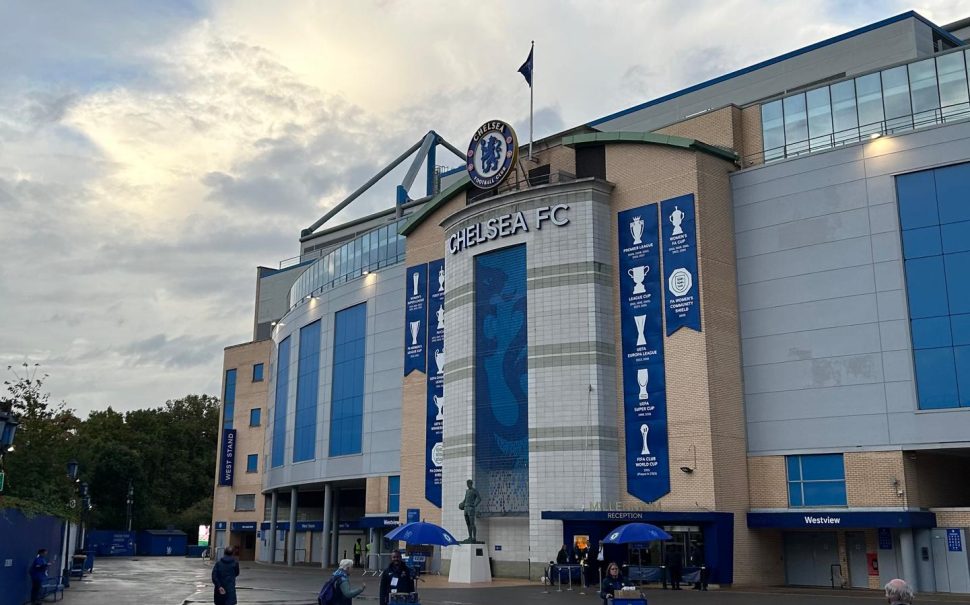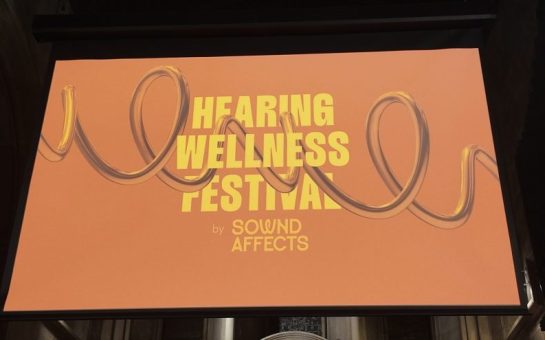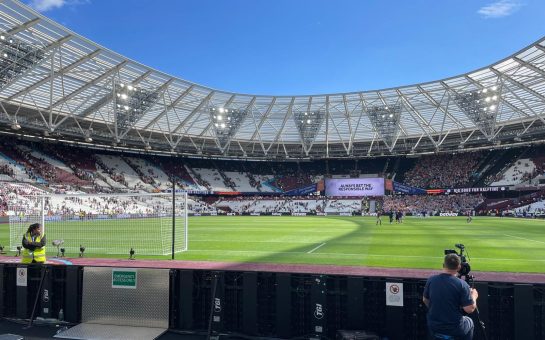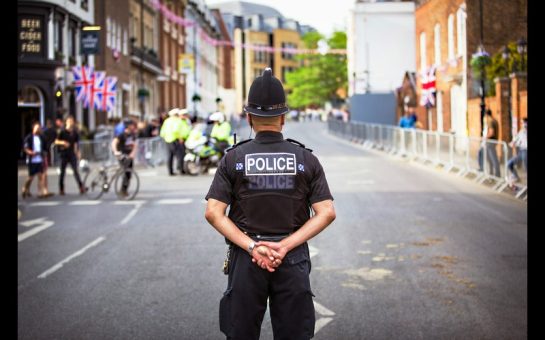The number of banning orders given out to fans of London’s professional football clubs has doubled since the 22-23 season, with many reaching beyond pre-pandemic levels.
Ten out of 13 London clubs have seen a net increase compared to data from 2019, undoing the trend of decreasing banning orders before the Covid-19 pandemic, according to data collected by the Home Office.
Football banning orders can stop fans from attending games for between three and ten years, preventing fans even from entering the club’s borough during a control period surrounding the game.
The recipient of the ban may also need to hand in their passport before an international fixture and, depending on whether it is a civil or criminal case, they could serve time in jail.
“People are less inclined to queue, behave and do the things that perhaps pre-Covid they did,” said Chief Inspector Pete Dearden, the Met’s football policing lead.
“But in terms of violence, I think it’s fair to say that post-Covid, there has been an increase, albeit far more frequent, lower level issues.
“We’re pushing for increases over football bans where appropriate, where proportionate.
“We’re policing football probably less than we ever did, because I think it’s absolutely right that the football clubs take ownership for the safety and security of their commercial events. It’s a multi-billion pound industry.
“I think over time it will level out, if not decrease, because at the minute we’re basically turning the taps on for people to report all of these issues that they didn’t do before.
“What we’re doing now is actually capturing that data and recording it and therefore there’s going to be an artificial increase because I think the issues have always been there.”
The rise in banning orders, therefore, tells two stories simultaneously.
The first is that of the rise in low level disruption, drug use and violence at football matches with what Dearden described as a lower level police presence.
The second, however, is the Met’s reported efforts to increase their documenting of offences which contributes to the rising banning orders on record.
West Ham are a case study in this dual phenomenon.
The east London club had the highest number of football banning orders on record from the 23/24 period, 93, a 79% increase from the period before, overtaking Millwall, whose 82 banning orders saw an increase of 24%.
“The club with the worst record in the country is West ham, only on the basis they have the most arrests,” said Dearden. “But I know that the reason for that is the tolerance of West Ham, it is a low threshold to be arrested.
“Millwall is still probably the club that presents the biggest challenge. Risk group activity really now in London is really a Millwall centric issue.”
Dearden recognised the traditional reputation of Millwall as the birthplace of hooliganism.
He said that although the club has done a lot of work to reduce racism and homophobia – the fans still perpetuate the myth of their reputation.
Behind West Ham and Millwall, Dearden also mentioned Tottenham Hotspur as providing one of the biggest challenges to police.
The gravity of the derby against Arsenal and the size of their ZoneEx, the area around the stadium which has to be cordoned off and pedestrianised on a matchday, are both big factors in this, he said.
Spurs are the most policed football club in London, the Met’s own data shows.
Yet Tottenham sit a great distance behind Arsenal and Chelsea in terms of banning orders received in the last recording period, with 29 to their respective 47 and 54.
This again is a reminder of the multifaceted nature to the data as it indicates a rise of poor behaviour and fan incidents within the scope of policing thresholds that vary from club to club.
Chelsea has the third highest number of banning orders in London, 54 after a rise of 69% in the past year.
Dearden mentioned Class A drug use as a contributor to this wider trend, something that Chelsea Supporter’s Trust Dan Silver also pointed out.
He said: “Fans of all generations seem to be as high as a kite. The season before the pandemic is when I really noticed the drug use, the availability of getting stuff is so much easier now.
“It becomes a whole day out. They do a line, it’s cool, it’s hard, maybe it gives them some extra confidence.
“With the pandemic it’s a year of lost football, lost socialising it’s like the fans are trying to make up for it.”
Silver also mentioned a widespread anger in Chelsea’s fanbase with the new owners, potentially provoking higher levels of aggravation.
In 2022 a group led by American billionaire Todd Boehly took over ownership of Chelsea after Russian oligarch Roman Abramovich’s 19 year long tenure.
This coincided immediately with a 12th place finish in the Premier League, their lowest league position since the 1993/4 season in which they finished 14th.
“It should be a place where you can go with your family with your kids and not have a toxic environment,” Silver said, seeing another perspective to the debate.
“In the Premier League, football is a pretty safe place to watch.”
Football is policed most highly in the Premier League, as can be seen by this data.
The Met’s Dearden said: “We don’t police every football match.
“What do people get away with in the lower leagues, where there’s very little policing?
“I just hope that football banning orders have the desired effect and ultimately, culturally and over time, people realise that that’s the consequence of misbehaviour and therefore the behaviour plateaus and comes down.”
Superintendent Gerry Parker, the Met’s lead for policing football in London, said: “The Met has a long-established and productive relationship with all of London’s football clubs.
“Each club in London is unique and has a dedicated football liaison officer from the Met assigned to them.
“We work closely with all clubs to tailor policing plans accordingly, and to ensure the safety of those attending matches is paramount.
“The policing operation around football matches is challenging with thousands of supporters moving across London on any given day, to and from various stadiums and transport hubs in the Capital.
“Where any criminality is identified, those responsible will be arrested and we will work with clubs to ensure information is shared and acted upon where required.”





Join the discussion